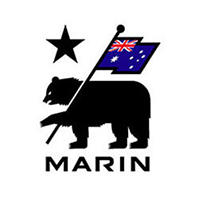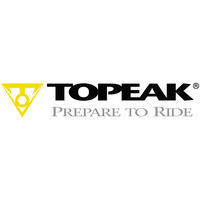The Bicycles Online success story featuring Polygon, Aldi, Entity, Marin and Cell Bikes
.jpg)
Photo courtesy of bicycles.net.au
One of Australia’s quiet achievers in the cycling industry is the Sydney based Bicycles Online. Headed by Jonathon Allara and James van Rooyen, the friendly duo timed their market entry at the moment cyclists started making higher value internet purchases and were prepared to buy a complete bike online. Competing against both Reid Bikes and Cell Bikes, Bicycles Online served consumers who were seeking a more reliable bike than the cheap-and-nasties from Kmart, Big W and Target, but with a more attractive price than established brands such as Giant, Trek, Specialized or Merida. Rather than building their own in-house brand from scratch like their competitors, van Rooyen and Allara signed-on the Indonesian-made Polygon brand.
As consumers opened to online purchasing and the big bike brands and distributers continued to ignore the online retail market, a host of new online retailers in Australia and overseas thrived. Bicycles Online quickly identified retail approaches to increase customer appeal and satisfaction including a 14-day money-back return period on bike purchases, genuine customer service phone support and understandable assembly guides. For many cycling regulars, Polygon remained under the radar for a while as it was pitched and priced towards new cyclists, though international MTBing success and a consistent online retail activity have propelled the recognition of the brand and Bicycles Online in Australia.
But selling Polygon bikes in Australia is only part of the Bicycles Online story; the team established the Entity brand of components and accessories which they now distribute to ten nations, they supply Aldi supermarkets across Australia with the Crane brand of bikes and they purchased the trademark for the Cell Bikes brand following the liquidation and have since relaunched it, beginning with e-bikes. One of the boldest ventures has been launching Bicycles Online in the United States and taking on distribution and retail in one of the most lucrative but competitive markets in the world.
Foundations
Today you will find the large Bicycles Online warehouse a few kilometers from the ocean shore in the northern beaches along-side the leafy Sydney suburb of Frenches Forest. They were previously located even closer to the beaches and had a retail showroom which was an advantage in the early days as they were building customer recognition and trust. Today Bicycles Online sell purely online though still retain the all-important customer telephone service which most online bike shops try and hide completely.
.jpg)
Photo courtesy of bicycles.net.au
I met James van Rooyen along with Dave Musgrove, brand manager and bike designer in the spacious office to delve deeper into the business and explore their next steps. By today’s standards, James van Rooyen suggests that it is far more difficult to establish a new online bike business as customers have higher expectations. Not only does the online pricing need to be attractive, the demands on the supply chain, logistics, administration and marketing are far greater. As brands continue to clamp down on internet sales such as the Shimano geo-blocking, it is increasing harder for online retailers to use creative approaches such as grey imports so the competitive opportunities from yesteryear are fading.
.jpg)
James van Rooyen of Bicycles Online (Photo courtesy of bicycles.net.au)
Indeed, Australia customers have benefited from fierce competition and particularly for higher-end aluminium bikes and entry-level carbon fiber bikes ($800 – $2,400 price segments) the value for money has been excellent. While Cell Bikes and Reid Cycles let quality control slip as they pushed out bikes across all categories and opened new retail outlets, the Polygon bikes were typically priced a touch higher (when directly comparing specifications) though the production and assembly quality remained on paar which has been crucial for long-term customer satisfaction. Bicycles Online also garnered a reputation for customer support though the telephone hotline, good assembly handbooks and, for example, by including a basic torque wrench with each bike shipped to make easier for the customer assemble their bike correctly. As a result, return rates remained low even with the generous ‘No questions asked satisfaction guarantee‘ returns policy.
Growth
Although much of the success of Bicycles Online in Australia can be attributed to selling ‘value-for-money’ bikes and keeping out of the high-end performance market, in the MTB segment the Polygon team and rider sponsorship now tells a different story. The professional Australian downhill mountain biking siblings Mick and Tracey Hannah along with extreme (Red Bull) Canadian rider Kurt Sorge have recorded major wins on Polygon mountain bikes and the brand enjoys significant visibility in performance MTB.
With the consistent growth of the Polygon brand in Australia through Bicycles Online, the Indonesian bike brand trusted the Australian team to take-over the US distribution. Many of the ‘best-practices’ in online sales transfer directly although the high cost of shipping within America along with the high rate of returns increases the challenge of doing business in the US. American customers are also more experienced in online shopping and it is in their nature to simply return online purchases more often than Australian customers.
Returning to Australia, Bicycles Online added Marin Bikes to their line-up. As one of the ‘grandfathers’ of mountain biking, Marin remains American though changes in brand ownership and production have brought it closer to the Indonesian Polygon brand.
.jpg)
Dave Musgrove is revitalising the Cell Bikes brand (Photo courtesy of bicycles.net.au)
One of the recent endeavours of the Sydney based business which turned a lot of heads was the purchase of the Cell Bikes trademark and subsequent brand relaunch. Before Cell Bikes over-extended and left a trail of debt in 2018, Dave Musgrove had long-since departed and taken a position at Bicycles Online. The collapse of Cell was an opportunity for Bicycles Online and Musgrove to rekindle the flame and at the end of 2019, Cell Bikes re-emerged with a simple lineup of e-bikes. The e-bikes were initially available for sale through Aldi Stores along with a promise that the Cell Bikes brand would be further expanded. While Bicycles Online are not seeking to recreate the previous “one-stop online retailer” format of the original Cell Bikes and will stick to bikes, it will far from ‘business as usual’ as Cell Bikes needs to align with to the existing Bicycles Online brands as well as a more mature online retail market.
.jpg)
Aldi Kids Bike Photo: Supplied
A new gap : Cell Kids Bike at Aldi
Supplying Aldi with bikes has been a success for Bicycles Online and the relaunched Cell Bikes brands is destined to feature heavily in upcoming Aldi specials, replacing the Crane brand. Cell Bikes designer Dave Musgrove has been eyeing a new bicycle segment and will shortly introduce a 24″ Cell Bikes ‘Ultralight’ kids bike will be available for sale in Aldi stores in Australia. In contrast to kids bikes from supermarkets or from bike shops, the Ultralight is positioned as a lightweight and attractively priced children’s bike.
Unless you are prepared to pay big-bucks, children’s bikes tend to be seriously heavy as they are over-engineered to be tough-as-guts. Though the new Cell Bikes Ultralight Kids Bike is not a contender against the weight-weenie carbon fiber sport bikes for adults, as a kids bike, 10kg is comparatively light and this makes it more fun for the kids to ride and is also easier to transport. For comparison, the Polygon Relic 24″ kids bike priced at $425 weighs 13.8kg although the Relic sports also features disk-brakes and a front-suspension fork.
Built for kids aged 8-12, the Ultralight opens a gap in the market as a lower-priced but good quality kids bike. Quality is a prerequisite for any bike and the reason why Bicycles Network Australia readers are always directed to bike shops, particularly for kids bikes, and not to the supermarkets like Kmart, Big W and Target. The unfortunate trap of buying the ‘seemingly attractive’ adults and kids bikes from those supermarkets is that the BSO’s (Bicycle Shaped Objects) are commonly poor constructed and poorly assembled plus there are no genuine customer service options or replacements.
I briefly looked at new Ultralight kids bikes while visiting Bicycles Online though a detailed inspection and long-term test has not been concluded. Understandability this means that an unreserved endorsement is not provided although the reputation of Bicycles Online is enough to suggest customers will be well served. The generous ALDI returns policy (along with the customer service from Bicycles Online) will also ease the minds of any hesitant buyers. Following the experience of previous bike sales, the Ultralight kids bike will likely be snapped up by shoppers and this could also push Cell Bikes to really open up a new gap for quality kids bikes at lower prices.
What is next
On top of a solid bike business, Jonathon and James of Bicycles Online appear to be driven in their pursuit of new opportunities. With the added team-support from bike designer and brand manager Dave Musgrove, it is open to speculation the invigorated Cell Bikes brand could reach point again where the brand was on the crux of setting standards in a new generation of popular and affordable, Australian designed city, recreational and sports bikes.
.jpg)
As the staff in the warehouse buzz about packing and picking bikes from rows of shelves in the long corridors and the customer service staff in the front office take calls from online customers, the atmosphere appears relaxed. But the team seems ready to step-up to meet the growing demand as if the path ahead was already pre-programmed. Beyond the immediate next steps for Bicycles Online, James and Dave are understandably quiet about future plans. Bike retail in Australia remains tightly contested and, understandably, there is no need to give the competition too many ideas.
Also read the article here.
 AUS
AUS USA
USA




.jpg)






















